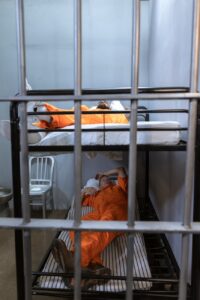Employees train in rape-crisis intervention
This archived article was written by: Tiffany Pusatello
Sexual assault is not a new term but one that has become increasingly discussed in the education system throughout the United States. And like other institutions of higher education, CEU has been educating its employees and students about its statistics. According to the book I Never Called It Rape, by Robin Warshaw, one in four college women who where surveyed are victims of rape or attempted rape and the majority of reported victims and offenders are college age, with the rape victimization highest among 16-19 year olds.
Also according to a National Institutes of Heath Study that appeared in Ms. Magazine, one fifth of college women experience forced sex by someone they know.
At CEU, 21 employees and students completed the state-mandated 40-hour training. Currently CEU has 13 trained advocates on campus to help survivors of sexual assault. They include Kate Alleman, Dede Howa, Sharon Jones, Mary Kava, Scott Lindquist, Tracie Noyes, Bill Osborn, James Prettyman, Erin Rowley, Darlene Severid, Brad Watson, Shanny Wilson, and Jan Young.
The role of an advocate is to inform a survivor of sexual assault of their options, medically and legally. Going through an advocate can help students to chose whether they want to report the incident formally, informally or not at all, and how the reporting process works. This way, students who wish to remain nameless can still get medical attention. An advocate can also explain medical options available to the survivor, which can include emergency contraception, often referred to as the “morning after pill”; a Code-R exam, which is a forensic exam to collect evidence; or to attend to basic medical needs. An advocate will also provide the survivor with a list of other resources available on our campus and in our area.
Unfortunately, CEU is running off of a 10-year-old policy because the new policy is having a hard time getting passed, said Kate Alleman, CEU Heath and Wellness Clinic nurse/sexual misconduct resource service coordinator.. The new policy breaks down individual guidelines to help handle individual cases more appropriately, while still giving firm guidelines on how to handle the incident. She said the policy must be passed by the Utah attorney general’s office. This approval is still pending CEU Attorney David Jones’ revisions and approvals, and must also pass the college senate before being sent to the attorney general’s office.
Under the Student’s Right to Know Act each student is to receive a booklet with the crime statistics for the last three years, including forcible sex offenses. The booklet also includes information on what to do if you are a victim of sexual assault, medical advice, a student’s rights and responsibilities, a voter registration form and the risks involved if you do commit a crime. The booklet should be mailed to the student’s home and is also supposed to be available at all times on campus.
According to Alleman, a crucial time frame during which most sexual assaults occur is fall semester, from August to October, or the first six weeks of classes. This is called the “Red Zone.” This is a time when college is first starting, and there are many frats and clubs to join. While there are no frats at CEU, clubs are a big part of student life. The new environment that many student experience, presents new freedoms and independence. Students are presented with a variety of choices, from when to come home, whether to drink and other similar opportunities. More than 80 percent of all rapes are committed by acquaintances, and a majority of sexual assaults occur within the residence, or dorm room of one of the parties involved, according to the U.S. Department of Justice.
While CEU is one of the most proactive colleges in the state, they are still having problems and are trying to do their best to assist anyone who has been assaulted in any way. The campus RAs completed rape crisis training, according to Luz Flores, who further explained that the sessions included crisis intervention, communication, mediation and alcohol and drug abuse. Almost 50 CEU faculty and staff attended a one-hour update on the reporting of sexual assault/misconduct and their legal obligations as employees of CEU. There are also phone numbers students can call if they report the rape or seek medical attention. Cards have been placed throughout campus with numbers to call. The rape crisis hot line, (888) 421-110; CEU Police Dispatch, (435) 637-0890; CEU Heath and Wellness Center, (435) 613-5607.




